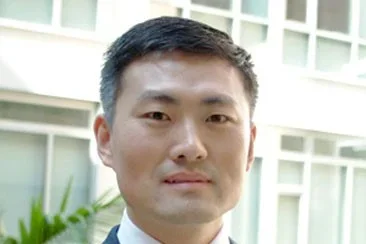CTSI Catalyst Awards
Apply for up to $5,000 to support team-building activities
Alert
UCLA CTSI Catalyst Grants support team-building activities that advance translational science and promote collaborations across disciplines and CTSI institutions.
Awards can be up to $5,000, depending on the nature scope of the project. CTSI invites applications for Catalyst Grants during the below timeframes.
| 2024 Sessions | Open Date | Due Date |
|---|---|---|
| Session 1 | Open Mar. 1 | Due Apr. 1 |
| Session 2 | Open Jul. 1 | Due Aug. 1 |
| Session 3 | Open Nov. 1 | Due Dec. 1 |
Application period is currently closed.
*Please note, online submissions require a UCLA Logon ID. You do not need to be a UCLA affiliate to get a UCLA Logon ID. If you do not have an ID, you can obtain one here.
“This event would not have been possible without the support of my mentor, his entire lab, the UCLA CTSI Communication team, and the UCLA CTSI Catalyst Award. Post-event evaluations were very positive, and multiple attendees were excited to enroll into our International Women-Scientists Network.”
Catalyst Grant projects include:
Events ($1,000 to $5,000)
Lunchtime seminars, daylong symposia with faculty and community presenters from inside and outside UCLA, student-organized poster sessions, conferences and workshops. Events should be broadly available to UCLA and CTSI-affiliated faculty, staff, students and community partners. CTSI support must be acknowledged in all advertising and onsite. Proposal must include a list of speakers and the location. Awardees must complete a post-event report.
Team/ Proposal Development ($1,000 to $5,000)
Meetings related to development of new translational courses, publication development, proposal development and industry partnerships. Interactions must be multidisciplinary and involve at least two UCLA-CTSI-affiliated institutions. Proposals must state how the activity will promote team development and outline next steps. Awardees will be required to complete a post-activity report and may be required to provide progress reports, depending on the nature of the activity. Agendas are expected to reflect inclusiveness, in keeping with the NIH Director’s announcement, “Time to End the Manel Tradition.” Please note, the Catalyst mechanism is not intended to fund research projects.
Eligibility
All CTSI-associated faculty in any series are eligible to apply as PI, including adjunct and professional research series. Post-doctoral scholars, residents and clinical fellows are eligible to apply as PI. Community-based partners may apply with a faculty Co-PI.
Requirements
Proposals for Catalyst Grants are limited to a maximum of 5,000 characters. Proposals must describe how the project will advance translational science and promote collaborations. In addition, applicants must provide metrics for determining the success of the proposed event or activity.
Applicant PIs and Co-PIs must provide a biosketch. Community-based Co-PIs may provide a CV or resume instead of a biosketch.
Catalyst Grant proposals exceeding $100 require cost sharing with at least one half of the total budget coming from non-CTSI sources. Funds from NIH grants or other federal agencies are not eligible matching funds. As available funds are limited, budgets must be justified. Food is a permissible expense. Travel expenses may also be considered if appropriately justified, e.g. speaker travel. Salary support for co-investigators or personnel or funds for CTSI consultation services are not allowed.
Several budgetary items that could be considered while developing your budget for symposia, workshop, conference or seminar series include:
- # of attendees (how large an audience do you anticipate)
- Venue cost (depending on the size needed and place)
- Will refreshments be provided?
- Will there be honorarium or travel costs anticipated for external speakers?
Note: due to the impact of the COVID-19 pandemic on events and team development, some budgetary guidelines may be subject to change.
Deadlines and Selection
The application deadlines are posted above and future cycles will be posted on this page. Priority will be given to applicants who have not previously received Catalyst Grants. Proposals that facilitate research across UCLA CTSI partner institutions or national CTSA consortium institutions will receive the highest priority.
Award notifications will be issued within 4-6 weeks of each deadline.
Successful applicants must provide their field of specialization, their NIH Commons ID and their IRB and/or IACUC numbers, if applicable, before funds are released. Recipients must credit NCATS and cite grant number UL1TR001881 in publications that result from Catalyst Grants. Applicants must acknowledge CTSI support in all materials (e.g., symposia fliers). Catalyst awardees must report the following information to the UCLA CTSI by Nov. 30 each year: (1) all publications that resulted from CTSI-supported research, with PubMed ID; and (2) all PHS and non-PHS federal support that contributed to the CTSI-supported research.
About UCLA CTSI
The UCLA Clinical and Translational Science Institute (CTSI) is a research partnership of UCLA, Cedars-Sinai Medical Center, Charles R. Drew University of Medicine and Science and the Lundquist Institute for Biomedical Innovation at Harbor-UCLA Medical Center. Its mission is to bring biomedical innovations to bear on the greatest health needs of Los Angeles—one of the most ethnically and economically diverse counties in the United States. Our vision is to catalyze research that translates discoveries into tangible improvements in health care, disease prevention and health in our community. The UCLA CTSI is one of more than 50 research hubs supported by the Clinical and Translational Sciences Award (CTSA) program of National Center for Advancing Translational Sciences (NCATS). NCATS—one of 27 Institutes and Centers at the National Institutes of Health (NIH)—was established to transform the translational process so that new treatments and cures for disease can be delivered to patients faster.
Recent News



